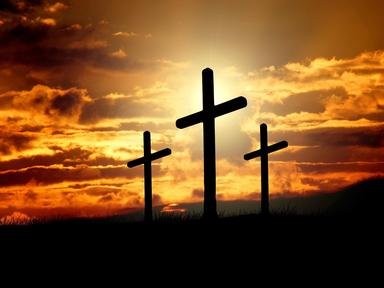Quiz Answer Key and Fun Facts
1. Born in 1484, this man became a prominent figure in the early years of the Protestant Reformation. He was a Swiss theologian and pastor known for his criticism of church practices and his role in shaping the Reformed tradition. Who is this man who was so important in the history of the Protestant Reformation?
2. This prominent Christian theologian and cleric was born in 1703 and is known for his role in the evangelical revival in England. He was the founder of a religious movement that emphasised personal faith, social justice and the importance of the Scripture. Who is this influential figure in the history of Christianity?
3. Born in 1837, this man is known for his key role in the 19th century evangelical movement. He was a prominent American evangelist and preacher who captivated audiences with his charismatic sermons. His dedication to spreading the Christian faith led to significant contributions and the establishment of institutions that promoted Christian education. Who is this influential figure?
4. This woman was a Spanish mystic, writer and reformer who played a significant role in the Catholic Reformation. She was born in 1515 and is best known for her spiritual writings, especially "The Interior Castle" and "The Way of Perfection", which continue to inspire readers. Who is this remarkable woman who contributed to the Christian mystical tradition?
5. This Christian mystic and anchoress, born around 1342, is best known for her work "Revelations of Divine Love", considered one of the most important texts in Christian mysticism. She explored profound theological insights and divine revelations in her writings, emphasising the boundless love and compassion of God. Who is this woman who made such a significant contribution to Christian mysticism?
6. Born in 1160, this man became a prominent religious leader and served as Pope from 1198 to 1216. During his papacy, he made significant contributions to the Catholic Church, including defining and refining church doctrine, organising the Fourth Lateran Council and exercising authority over various European monarchs. Who is this Pope who played a crucial role in the history of the Catholic Church?
7. This man, born in 1480, played a crucial role in the early years of the Anabaptist movement. A theologian and pastor, he advocated adult baptism and the separation of church and state. Who is this key figure in Anabaptist history?
8. Born in 354, this influential Christian figure is widely recognised as one of the most important Church Fathers and theologians in Christian history. His writings, including "Confessions" and "City of God", have profoundly shaped Christian thought and theology. Who is this prominent theologian and philosopher whose influence on Christianity remains significant?
9. This woman was a German Benedictine abbess, writer, composer and mystic. Born in 1098, she made significant contributions to medieval theology, music and holistic health practices during the Middle Ages. Who is this remarkable woman known for her visionary writings and compositions?
10. This remarkable woman, born in 1347, was an Italian mystic, author, and theologian who played a significant role in the Catholic Church during the 14th century. She is best known for her writings, particularly "The Dialogue", which documents her spiritual experiences and teachings. Who is this woman who made a lasting impact on Christian spirituality?
Source: Author
wellenbrecher
This quiz was reviewed by FunTrivia editor
looney_tunes before going online.
Any errors found in FunTrivia content are routinely corrected through our feedback system.
